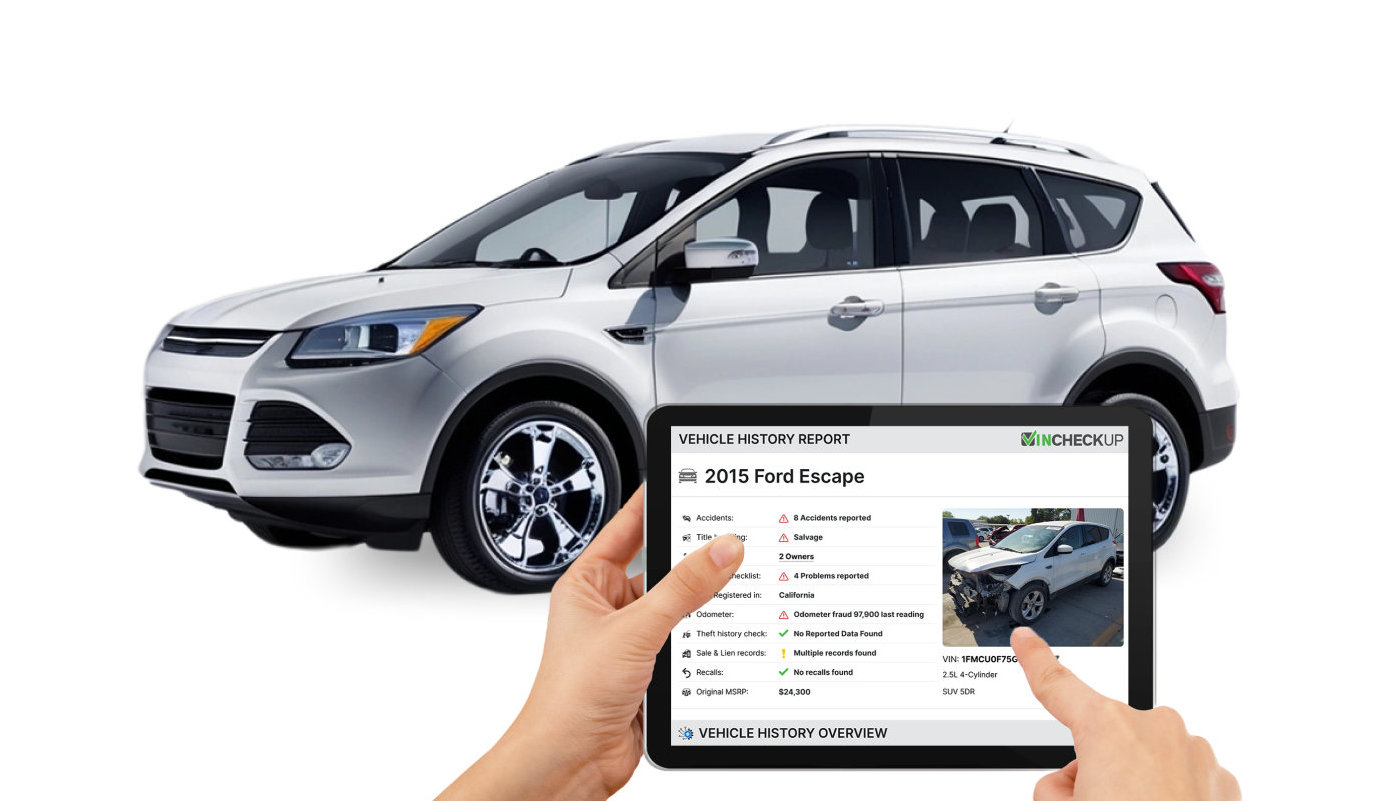Please check your VIN to make sure it's valid and try your search again.
VIN must be made up of exactly 17 characters and belongs to a vehicle manufacturer after 1980.
Reports available on Cars, Trucks, Vans, RVs and Motorcycles.



"Have to say I am surprised how much valuable information you guys were able to give me. Thanks a lot." - John K.
The process of buying a pre-owned car in North Carolina can be met with a variety of unique local challenges. Used car buying experience in North Carolina will be shaped by various environmental, economic and regulatory conditions. From increased property crime rates to harsh weather conditions, there are several hurdles that can complicate the car-buying process in this state.
North Carolina has a higher rate of property crimes, which includes vehicle theft. According to the North Carolina State Bureau of Investigation, the state's vehicle theft rate is 20% higher than the national average. In fact, in 2021, there were over 20,000 reported vehicle thefts in North Carolina, with cities like Charlotte and Raleigh experiencing the highest rates of vehicle thefts. This means that there is a greater risk of buying a car that has been stolen or involved in criminal activities, which can lead to legal complications and financial losses.
Some cities and areas within the state also face significant economic challenges with a higher poverty rate and lower median household income in certain areas compared to the national average. According to the U.S. Census Bureau, the poverty rate in some parts of North Carolina is 15%, which is 3% higher than the national average. Economic hardship can lead to poorly maintained vehicles being sold on the used car market, as owners may not have the resources to keep their cars in good condition.
Further exacerbating the vehicle ownership affordability issue in the state are the high insurance rates. North Carolina has among the highest car insurance rates in the country. The North Carolina Department of Insurance reports that the average annual cost of auto insurance in the state is $1,350, which is about 25% higher than the national average. A compact sedan in Charlotte might have an insurance premium that is as much as 35% higher than a similar vehicle in a less densely populated area. This is due to factors such as elevated crime rates, the cost of repairs in urban areas and the state's no-fault insurance system.
One other important fact to keep in mind is that North Carolina is a predominantly rural state. The North Carolina Department of Commerce notes that over 60% of the state's population lives in rural or semi-rural areas. This can make it challenging to find a wide selection of used cars, especially in smaller towns where there may be only a handful of dealerships or private sellers. The limited options can lead to higher prices and fewer choices.
In addition to socioeconomic issues, North Carolina is also affected by extreme weather events, particularly during the winter months. The North Carolina Department of Transportation (NCDOT) reports that the state experiences an average of 10 tornadoes per year and heavy rainfall can lead to flash flooding, particularly in the eastern and coastal regions. These weather events can cause significant damage to vehicles, including storm related body damage and water damage to vital vehicle components such as the engine, transmission and electrical systems.
Understand the unique challenges plaguing North Carolina's used car market is just a part of the equation. To be able to tell apart a good reasonably priced vehicle from one that has diminished value due to mechanical, electrical, cosmetic, mechanical, structural or legal issues, it is imperative to investigate the vehicle's history. Determining the type of life the vehicle has lived can help you assess its value, safety and long-term reliability. A vehicle history report in North Carolina is one of the most powerful tools in the used car buyer's arsenal as it may reveal information that the seller may not want you to know.
A full vehicle history report in North Carolina may provide vital vehicle history details as they relate to:
While a vehicle history report in North Carolina may provide users with a good glimpse into the vehicle's past possibly helping them assess its value and desirability they cannot give a definitive representation of the vehicle's condition at the time of sale. This is why it is highly advised to have the vehicle professionally inspected by a trusted automotive technician prior to finalizing the sale.
This type of inspection can give you a clear understanding of the vehicle's current condition and help account for and budget for upcoming repairs. There is no substitute for a pre-purchase vehicle inspection as it may uncover issues that were never reported to any insurance companies, DMV or data reporting agencies. It can identify various hidden issues such as excessive corrosion, structural damage from previous collision or excessive rust, electrical faults, hidden auto body repair and more...
By checking the vehicle's history and having it inspected prior to purchase you can greatly reduce some of the risks that come with buying a preowned car in North Carolina. Additionally, by knowing what the car is worth and understanding its current condition you are better able to negotiate the price and know when to walk away from the deal.
Growing Population
with over 11 million people currently living in NC
8 million+
registered vehicle in NC
1 in 5 cars for sale in NC
has had a previous accident
3 million+
vehicles sold in NC annually
Conducting a simple VIN check before purchasing a vehicle is a crucial move that may help you avoid potential problems and future expenses. Taking this step may give you the opportunity to:
In today's market, transparency is everything. By checking the VIN, you equip yourself with the knowledge to make an informed choice, safeguarding your investment and ensuring you drive away with confidence.